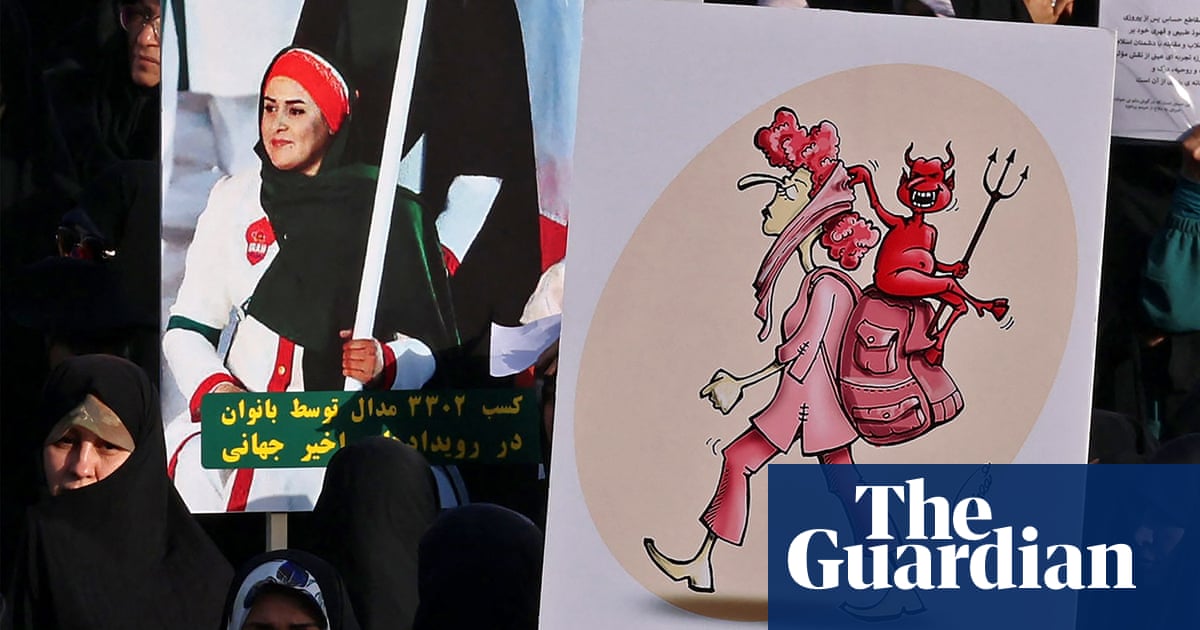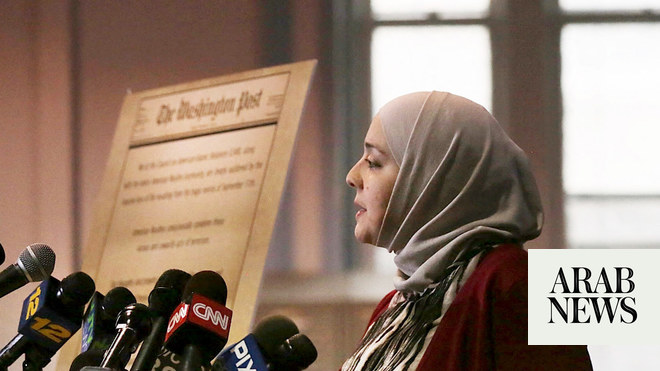
The removal of a Canadian teacher for wearing a hijab in the classroom has sparked widespread condemnation of a controversial law in the province of Quebec, which critics say unfairly targets ethnic minorities under the pretext of secularism.
Fatemeh Anvari, a third-grade teacher in the town of Chelsea, was told earlier this month that she would no longer be allowed to continue in the role because her headwear ran afoul of Bill 21, a law passed in 2019.
Under the measure, public servants in “positions of authority” – including police officers, lawyers, judges, bus drivers, doctors, social workers and teachers – are barred from wearing religious symbols such as turbans, kippahs and hijabs.
But the law has an outsized impact on Muslim women and in schools in the province, where 74.5% of teachers are women.
“This is not about my article of clothing. This is a bigger issue … I don’t want this to be a personal thing because that won’t do any good to anyone,” Anvari told CTV News. “I want this to be something in which we all think about how big decisions affect other lives.”
Anvari’s dismissal has prompted protests at her school, where students and staff put up green ribbons and posters in support of her.
The decision to remove Anvari from the classroom, and to reassign her to a literacy project on diversity and inclusion, has also led to frustration from federal politicians.
On Monday, Prime Minister Justin Trudeau said no one should lose their job because of their religion – but refused to intervene, saying he didn’t want to create a fight between Quebec and the federal government.
Trudeau said it was important “to ensure that it is Quebecers themselves who deeply disagree with the fact that someone can lose their job because of their religion”.
New Democratic party leader Jagmeet Singh said Anvari’s abilities as a teacher were never in doubt, but “because of the way she looked and they way she dressed, she’s no longer able to teach these kids. That is everything that is wrong with this bill.”
Conservative MP Kyle Seeback described Anvari’s dismissal as “an absolute disgrace”.
While Conservative leader Erin O’Toole said he disagrees with the law, he told reporters he respects provincial jurisdiction and believes Bill 21 is “an issue that is best left for Quebecers to decide”.
Federal leaders have been wary of angering voters in Quebec by taking too strong a stand against the law.
In Quebec, where the measure has popular support, political leaders defended Bill 21.
“The reason this teacher doesn’t have a job is because she didn’t respect the law,” said Pascal Bérubé, the Parti Québécois’s critic on secularism. “The law is for everyone. She tried to make a statement wearing a hijab.”
Premier Francois Legault called Bill 21 “a reasonable law” adding that Anvari should not have been hired in the first place.
Workers hired before March 2019 are still permitted to wear religious symbols at work. But because Anvari became a substitute teaching last spring and signed a new contract in October, she is barred from wearing a hijab in the classroom.
Trudeau has said federal intervention would be unlikely to have much effect, given Quebec’s ability to invoke a constitutional override power known as the “notwithstanding clause” which protects the province from claims that it violates rights protected by Canada’s Charter of Rights and Freedoms.
English-language schools in the province have fought the law and recently lost a court challenge preventing the bill from going into effect.












